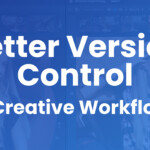Creating a diverse, equitable, and inclusive (DEI) workplace can have huge benefits across the board. Building a diverse team is the right choice for many reasons. Aside from emphasizing the importance of people-first, it’s proven to be more profitable.
Striving for better DEI practices can positively impact creativity, productivity, and collaboration. According to a survey by BCG, companies with a diverse management team are more innovative and enjoy 19% higher revenues. McKinsey observed that the higher a company’s levels of gender and ethnic diversity, the more likely it is to significantly outperform less diverse competitors. And companies with teams where men and women are treated equitably had 41% higher revenues .

Understanding Diversity, Equity, and Inclusion
Before considering the benefits of Diversity, Equity, and Inclusion (DEI), it’s important to understand the concepts and how they apply to the workplace.
The term “diversity” refers to the range and variety of differences that exist between people. It can be broken down into two types:
- Inherent Diversity: Qualities people are born with, such as ethnicity.
- Acquired Diversity: Differences gained throughout life, such as education and skills.
Typically, a diversity focus in a business context refers to the practice of employing a wide range of people with different characteristics, such as gender, ethnicity, ability, sexuality, and nationality.
For diversity to have a positive impact, people must feel valued and free to provide insights based on their personal experiences. That’s where equity and inclusion come in.
Equity involves creating fairness within an organization. It is intended to ensure that everyone has the same access, opportunities, and potential for advancement, no matter their circumstances.
Inclusion is about how people feel within an environment. An inclusive workplace is one where everyone feels safe from discrimination. Employees can express themselves authentically, and they feel valued for what they bring as an individual.
The Global Diversity Practice sums it up well: “…it’s about empowering people by respecting and appreciating what makes them different”.
The Advantages of DEI for Creativity
“Diversity and inclusion, which are the real grounds for creativity, must remain at the center of what we do.” – Marco Bizzarri (CEO, Gucci)
One of the most important advantages of DEI is the impact it has on what your team can achieve in their creative work. In a global survey by Josh Bersin and Deloitte, inclusive companies were found to be 1.7 times more likely to be innovation leaders in their industry.
This encouraging stat makes perfect sense when you consider that creativity relies on individual experiences and unique perspectives.
With a wider range of experiences to draw on, a diverse team who feels comfortable sharing their perspectives can inspire, inform, and challenge one another to consider different approaches. This results in outcomes that will better serve your customer base.
The Advantages of DEI for Collaboration
“A diverse mix of voices leads to better discussions, decisions, and outcomes for everyone.” – Sundar Pichai (CEO, Google)
Indeed, a study by Clover Pop found that diverse teams are up to 87% better at decision-making and that those decisions deliver 60% more favorable results.
With different skills, insights, and priorities, diverse teams can factor in a variety of angles that would escape a homogenous group. It helps to prevent echo chambers and reduces the likelihood of mistakes occurring due to knowledge gaps.
Mandy Bynum McLaughlin, co-founder of The Race Equ(al)ity Project, describes how this can work in practice: “When we’ve had to make quick decisions without the right perspectives in the room, we end up holding ourselves back in the long run. So we take the time on the front end to incorporate as many different perspectives as possible and use the diversity of our team to fill in each other’s blind spots.”
Additionally, DEI helps to build respect, openness, and empathy within teams. For collaboration to be truly effective, you need to create a safe environment where people feel comfortable engaging in the robust discussions necessary for success.
The Advantages of DEI for Productivity.
“We have a very diverse environment and a very inclusive culture. [That] got us through the tough times. Diversity generated better strategy, better risk management, better debates, [and] better outcomes.” – Alan Joyce (CEO, Qantas)
When people feel like “the odd one out”, they spend valuable energy on conforming, are more risk averse, and may avoid asking the questions that would enable them to work effectively. Contrastingly, when everyone feels comfortable being themselves, it motivates them to be more productive.
An employee who feels valued as an individual is also more likely to feel a sense of pride and responsibility in the work they do. This benefits productivity directly by keeping staff accountable and indirectly by ensuring continuity through talent retention.
Lastly, DEI can positively influence professional growth. When you bring people with diverse skills and approaches together, they teach and inspire one another. People who work in a diverse and inclusive environment also internalize what they learn from the people around them, making them more aware of different perspectives and more willing to challenge existing narratives.
All of these factors help people to become more effective and efficient members of your organization by simply doing their job, interacting with their teams, and being who they are.
As Holly Branson, Virgin’s Chief Purpose and Vision Officer puts it: “From day one at Virgin, we’ve known that our people are our greatest asset, so it doesn’t make sense to stifle their individuality.”
Diversity, Equity, and Inclusion at Work
“If you believe, as we believe, that diversity leads to better products, and we’re all about making products that enrich people’s lives, then you obviously put a ton of energy behind diversity the same way you would put a ton of energy behind anything else that is truly important.” – Tim Cook (CEO, Apple)
To thrive, a business needs to be able to understand, appeal to, and serve the needs of its audience. By prioritizing diversity, equity, and inclusion, you ensure that you have a wealth of perspectives to guide the decisions you make and the products you create.
DEI enables you to create a workplace culture that attracts, nurtures, and supports talent. It empowers your teams to provide the insight, ideas, and effort necessary to secure the business’s long-term success.






